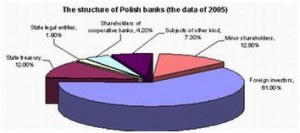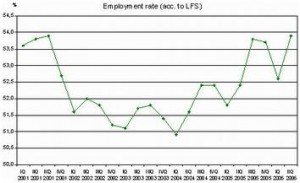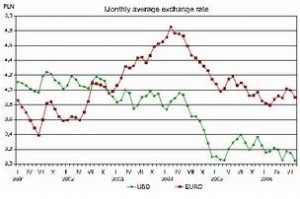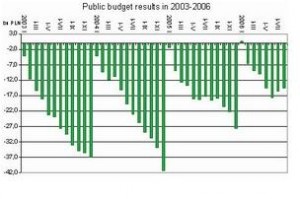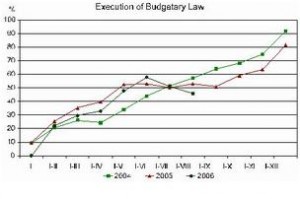Who decides Georgia’s fate
Professor Emzar Jgerenaia
Exclusively from Warsaw-Wroclaw
Georgia is at difficult cross-roads – it is trying to finally break away from Russia’s imperial sphere of influence, join NATO and, in prospect, become a member of the European Union. The country wants to arrange its economy so that it should not be dependent only on trade relations with Russia, its raw materials’ market or sales sphere. The task is much more difficult – according to western experts, admission of Georgia or any other country to NATO – which is necessary in order to finally get defense against Russia, is a political step and the West will take this step with comparative ease under the compulsion on the part of the US. Georgia will become NATO’s member in spite of the fact that Russia directly presented an ultimatum to NATO’s Secretary General Jaap de Hoop Scheffer, who visited Moscow in late October, not to invite Georgia to the NATO Summit in Riga and not to propose anything new to it. He agreed not to invite and not to make any new proposals (probably NATO’s head felt embarrassed to exasperate infuriated Russia still more at this stage); the more infuriated Russia’s resistance to Georgia’s integration into NATO will be, the sooner Georgia will become NATO’s member. As to a full-fledged entry to the European economic space, it is a rather difficult subject and Europe will not bring itself to it so easily at this stage, in spite of the fact that the State Secretary Assistant Braiza reproached the Europeans during his visit to Brussels and urged European leaders not to be afraid of Russia since, in Mr. Braiza’s opinion, Russia needs European money the way Europe needs Russian gas. He also said that there are many alternative sources, including Iran. In spite of the fact that the European Parliament passed three resolutions after this decision and condemned Russia in connection with Georgia, a lot still has to be done here. It is a very difficult process and requires economic reorganizations, a high level of economic development and serious work with the EU structures. The latter is distinguished by its peculiarities and is very scrupulous.
At the October meeting of European leaders with Mr.Putin all of them, except for the Polish leader, made curtsies before Russia, especially the French President, though it did not help very much to solve Total’s problems in Sakhalin. France is more concerned about protection of its firms’ interests and winning Russia’s favor than protection of democracy and freedom ideas in the world and Georgia’s security.
Today everyone, except for Russia, supports Georgia, but verbal support is one thing and concrete steps – another.
Europe does not hasten in taking serious concrete steps, it does not expedite the processes. Europe wants to contain Russia’s imperial ambitions and make it a democratic and liberal country, but it is afraid of taking harsh steps. To put it mildly, Europe does not like Russia, but it needs it. Both the EU on the whole and its separate members have interests in relation to Russia.
Everybody is concerned over the stagnation background in Georgian-Russian relations, the world can see how during the period of 200 years Russia has been trying to eradicate Georgia’s statehood, how it does its best to retain this small but strategically important country in the sphere of its influence. However, the world faces many burning issues besides the Georgia one – there are problems related to Korea and Iran, terrorism in Africa, dictatorial enclaves in Latin America, as well as energy security, undemocratic countries growing from both economic and military point of view that are supporting them and threaten a normal economic development in the world and peace in general.
There is nothing new here, everybody knows that. The main thing is that at this decisive moment Georgia needs true friends that will do more in practice. It needs a serious lobbyist in the European Union that will be its guide in EU’s complicated bureaucratic corridors and show the country the ways leading it to the European Union in the shortest possible time and, on the other hand, convince the EU countries of the importance of that not only for Georgia but for the democratic world as well. It is difficult to simply explain to Europe what it means to get rid of the 200 years’ long domination, it has not endured that, it is difficult to explain how Russia’s imperial government of all times can oppress a small neighboring country – they have not endured that either, how it can stifle a small economy in its claws for its imperial goals. It is the nine-headed giant that imprisoned the beauty and won’t release her, and neither time nor space has an effect on him. They have not endured this either, in spite of the fact that Suvorov visited the Alps, the tsar’s army was fighting Napoleon’s legionaries in Paris and Russia controlled half of Berlin for half a century.
“From 2007 Germany will head the EU and Angela Merkel’s government is preparing a special document on a new stage of neighborly relations with Georgia”, – said the Chairman of the Polish Seym’s Committee for Foreign Affairs Pavel Zolevski. According to his words, Poland, as a member of the EU and Georgia’s lobbyist, is going to play an active part in drawing up of this document and really raise Georgia-EU relations to a qualitatively new level, which will be another sign of support with the purpose of getting out of the current situation. However, he emphasized that it will be a serious and long process for Georgia and the country should prepare for it. Poland, on the one hand, is ready to share its wide experience of work with European structures and, on the other hand, was Georgia’s lobbyist in these structures.
If Georgia loses this war that will be a defeat of the whole democratic world, since after that no one will be able to contain Russia and appease its imperial appetite.
Among the EU countries, Poland is the country that has endured the pandemonium of Russia’s imperial machine. It also was Russia’s colony for 200 years, which was destroying the nation, executing the country’s intellectuals and officers, ruining its economy and political system. After the end of the World War II Poland’s revived statehood was again in the sphere of Russia’s influence till 1990s and the century-old struggle for freedom has allegedly ended, but to present day Russia continues the war, this time an economic one, against Poland in spite of its membership in NATO and the EU. Poland also needs Georgia as an ally in this war. Thus, Poland knows what way it has passed to its becoming a member of the EU, how it carried out transformation of the socialist economy into one of the most rapidly developing economies in the world, created market institutions and attracted serious investments. It really needs Georgia’s independence as well as the independence of Ukraine, Belarus and Baltic countries. This will be a serious democratic front, not against Russia but against imperialist forces in Russia, having the purpose of establishing equal relations between Russia and small neighboring countries, ensuring energy security, military security, territorial integrity and free trade principles in the region and formation of Russia not as neighboring hostile empire, but as an equal trade and political partner.
It is logical that, according to Poland’s leaders, the country has a serious chance and, which is most important, a wish to be Georgia’s lobbyist in the EU, NATO and general ally in Georgia’s actions, which will lead to restoration of territorial integrity construction of developed economy and cultural-ethnic harmonization.
It is a very bad fact that, in spite of close coordinated and friendly relations between the first persons of Georgia and Poland, which was confirmed by the speech of the Polish president at the meeting of the EU leaders with Mr. Putin in Latvia in October, in which he openly supported Georgia and condemned the neighboring country for its indiscreet behavior. However, in spite of the fact that Mr. Kaczynski, as it is known from reliable sources, will come to Tbilisi to express his support once again at the holiday on November 23, the trade-economic relations between our countries and the investment balance are rather scanty. What is Poland, what kind of reforms it implements, what it has achieved and what close relations with it can bring to Georgia? We offer you an exclusive material from Warsaw and Wroclaw, which is dedicated to the great Polish holiday – the Liberation Day, which is celebrated on November 11. We congratulate this courageous and really freedom-loving people.
REVIEW OF POLAND ECONOMY
What country is Poland, what reforms it implements, what it has achieved and what close relations with it can bring to Georgia?
We present you an exclusive material from Warsaw and Wroclaw that is dedicated to Poland’s great holiday – Liberation Day that is celebrated on November 11. We congratulete this brave and freedom-loving people.
Reforms – the shock therapy
What is the shock therapy? Why is it applied? How does it work? What is the real social cost of the reform? What results does it bring to the post-communist countries from the economic point of view, in what relations do they enter with the western countries and the ones where the shock therapy reforms are being implemented?
The term “shock therapy” means implementation of radical changes in theeconomy, the purpose of which is economic stabilization, liberalization, privatization and creation of the economy that is open for the international market. The first precedent of shock therapy took place in Bolivia, then in Poland and Russia. The extent of success in implementation of reforms in the mentioned countries is different. The new policy caused a lot of debates in Poland, which were oriented for one issue – whether the shock therapy will justify the pain that would be inevitable in view of the radical changes.
Analysts give the following simple determination of shock therapy – it is nothing but a revolutionary strategy for the completion of the country’s economic reconstruction.
Poland’s Finance Minister of that time Leszek Balcerowicz was the initiator of implementation of the shock therapy in the country. Balcerowicz became the subject of the world’s attention, the shock therapy put Poland on the track of development, but the reform, because of which interest rates and prices were rising, was so unpopular that Balcerowicz left his post in 1991.
Most analysts believe that the shock therapy was not the main driving force of economic development in Poland, but some researchers say that the reform was undoubtedly successful, as a result of which the inflation rate dropped and export increased.
However, in spite of the services of the current President of the National Bank to the economy, Poland’s legislative body set up a special commission that will consider political shortcomings of the past years’ privatization. Balcerowicz was summoned to the commission, but he evaded it. In conversation with us the Deputy Minister of Economy, the State Secretary Mr. Naimski said that he is going to leave his post in the near future, since a certain group of politicians believes that his reforms were not effective and threw Poland several years back.
Privatization process in Poland
Opposite views concerning privatization dominated in Poland for years. This issue has been the reason for heated debates. A part of the population gives a negative appraisal to it, while the other one believes that privatization brings wishful results.
OECD countries (an organization of the world’s rich countries) formulated a new notion for the world’s poor countries, which they courteously called “countries with transitional economy”. In a part of these countries the privatization process has almost finished, the other part maintains that it has finished, but in reality it even has not started there. According to the official figures, in Albania, Czech Republic, Estonia, Lithuania, Poland and Slovakia 90% of small enterprises have been privatized, in Russia and Latvia – 70%.
As to large enterprises, the situation is more difficult: Czech Republic (81%), Hungary (75%), Lithuania (57%), Russia (55%), Latvia and Slovakia (46%), Mongolia (41%), Poland (32%), Moldova (27%), Belarus (11%), Georgia (2%).
50% of the privatized enterprises in Poland belong to foreigners, i.e. their management style and standards are oriented for the West. On the other hand, in future privatization ensures the firms’ existence and, proceeding from that, increasing of the employment rate.
In 1990s important changes were implemented in the Polish economy and the privatization process was particularly characteristic. The collapse of the communist system caused the growth in the private sector, most enterprises in which are represented by small trade and construction enterprises. During these years 516 000 new businesses were set up in Poland and among them 100 000 formerly state-owned small businesses that were sold to private investors. From 1991 41 450 new companies and 1.4 million businesses being in individual ownership has been registered in the country. Finally, in 1990-1991 80% of Polish shops were in private ownership and 40% of import was implemented by private traders.
The period necessary for preparation of the legal and administrative base required more time than it had been expected. The process of privatization of small shops, restaurants and other services turned out to be much easier than that of large enterprises. Foreign capital will also be invested in privatization of large enterprises. With the purpose of simplification of the processes, the country’s Prime-Minister Ian Bieleski introduced an untaxed voucher for young citizens, which could be exchanged for a share of the investment fund. At the beginning, the fund’s foreign and Polish firms were jointly managing it on the contract basis. Voucher owners should have invested 27% of the share in the enterprise chosen for “mass privatization”, then they were given an opportunity to possess the 33% share of the enterprise sold at the auction. The purpose of this decision was ensuring the share owners’ control over the enterprise. However, this programs entailed a number of problems. In 1992 the Polish government was changed, so vouchers of only about ten large enterprises were sold.
In 1990 the private sector of Poland’s economy was the most dynamically developing one. The country’s GDP dropped by 12%, but it rose by 17% in the private sector; the total production dropped by 23%, but in the private sector it rose by 8%. In 1991 the index of those employed in the private sector reached 38%. 22.1% of industrial output, 43% of construction and 70% of retail trade fell on the private sector. The private sector’s activity in foreign trade, which in 1991 made up 28% of foreign transactions, was a surprise.
In 1992 17.4% of the state-owned enterprises were privatized. Restructuring of the privatized enterprises took place in several ways: medium enterprises were liquidated, while the large ones were turned into joint-stock companies and limited liability companies.
But the final and decisive stage of this process began in Poland after its joining the EU, which is the basis of successful Polish economy.
Representatives of the Polish Treasury say that in 2006 the incomes received from privatization will make up 3.1 billion zlotys. The government’s representatives believe that it is possible to cover the deficit with the dividends of the state-owned companies.
Reduction of incomes in the energy sector has taken place because of exclusion of several companies from the selling process. The Minister of Treasury called upon the MPs to support the new plan of privatization of the state property, which his ministry is working on. The minister maintains that the new strategy ensures state incomes from privatization, which will be 3-4 billion zlotys a year.
Thus, here is Poland’s economic review:
On 1 May 2004 Poland became a member of the EU; it has been implementing various reforms for years in order to draw the Polish market closer to the European standards. In 2004 Poland’s GDP made up 5.3%, but in 2006 it makes only 3%. According to the International Monetary Fund’s forecast, by the end of 2006 the country’s GDP will make up 4%. A lot of investments are being implemented in the country. As to the growth of investments, it holds the fourth place in the world.
25% of the population is employed in agriculture, but this sphere’s share in the total GDP makes up only 3.1%. The economy is directed by the production sector, while 66% of the GDP falls on services. The Polish market offers significant trade opportunities for investors, especially in the spheres of communications, environment, transport, construction and international technologies.
Thanks to political and economic stability, the Polish economy is growing at high rates, it is one of the most rapidly developing economies in the European region. An important share in this success belongs to export, production and growth of investments. The unemployment rate is rising slowly. The expected export indicator in 2006 is 8.4%, in 2007 it was 8.7%, the import indicator will increase as well. In 2006 the inflation indicator made up 2.1%, while in March 2006 the consumer price index decreased by 0.1%.
From 2000 the growth of Polish export exceeds that of import, which is a result of increasing of the competitive ability of Polish goods. Polish firms are oriented for export, the market’s leaders are implementing export not only to the EU countries, but to Russia and Asian countries as well. Exporters are constantly trying to reduce the prices and improve the quality. Thanks to the solid Polish zloty they are able to create modern technologies. The volume of export implemented by Polish companies in 2005 made up 89,3 billion USD. The cost of the Polish export is sharply increasing, in 2005 it rose by 2.1% in comparison with 2004.
The list of Poland’s main export partners includes Russia, China, Great Britain, Ukrain and France. Among the importing countries are Russia, China and Belgium. Poland’s goods turnover with the 10 exporting countries makes up 68.2%, and that of the total export – 67.1%.
Industrial and
technological parks in
Poland – the EU’s project for the support of small and medium business, which is an important novelty for Georgia as well
The European Union has a special program for rendering assistance to medium and small business. They believe that if a person has an idea and he wishes to take up business, he should be given a comprehensive support so that he could create a workplace, and no business idea or initiative should be left without assistance and attention. With that end in view, technological parks, the purpose of which is rendering assistance to small and medium business, were set up in the whole of Poland by means of the EU’s assistance and grants. In order to familiarize ourselves with technological parks, we visited one of them that is located near to one of the most beautiful and highly developed Polish cities – Wroclaw.
What is a technological park? It is a modern business centre, a super modern enterprise with exhibition and other spaces that business needs. It includes laboratories, technological, marketing and promotion consultations at fifth part of the price. If you have an idea but no production space, you can hire it for a token payment, you can also make use of the laboratory, get a certificate, the necessary equipment, a consultation from a marketing specialist as well as everything that is necessary for manufacturing work at minimal expenses.
According to the statement of the mayor of Wroclaw – Rafal Dutkiewicz, who is running for the post this November again, tens of thousands of jobs and thousands of new businesses were created in the city by means of this technological park. Here students have their probation and practical work and small firms choose their employees among these students, that is why the number of students in Wroclaw has increased. The population’s incomes have increased as well and the city has become attractive for investors. According to him, the example of all this is the large new factory of the Korean electronic giant LG that will be launched by the end of the year. At the same time he invited us to the special economic forum, at which there was a discussion as to holding of the World Exhibition in Wroclaw after is held in Shanghai in 2012 and its role for the economic development.
The popularity of technological parks is growing day by day and they are a serious integral part of the European business support program having a positive effect on the growth of the employment indicator. Poland has serious experience from this point of view and our partners are ready to share this experience as to how to set up this kind of parks in Georgia and how to involve the EU in it. We believe that it is an urgent arrangement for Georgia’s development and our government should start cooperation in this relation from today.
Industrial and technological parks are becoming increasingly popular in Poland, since they give an opportunity for regional development, which is also important for Georgia’s realities.
A technological park contributes to exchanging of knowledge between scientific institutions and business. The following services are offered to high-tech companies:
– Establishment and development of the company
– Transfer of technologies
– Projects related to scientific research in technological novelties and development
– Creation of favorable conditions for business
Scientific and technological park in Poznan was set up in May 1995, which was the first precedent in Poland. After the technological parks, the development in Poland was supported by Business and Innovation Centers Association of Poland.
The technological park was set up in cooperation with the local administration, which envisages privileges for business activity, especially for small and medium enterprises. The main purposes of industrial and technological parks are as follows:
– An opportunity of using new technologies by the companies
– Attraction of investors
– Creation of new workplaces
In spite of the fact that industrial and technological parks have the same purposes, their capabilities differ. All parks have different marks and they are oriented for their own regional, cultural and economic conditions. There is no single universal model, but each of them have their own system of management. Technological and industrial parks are yet another friendly gesture made towards potential investors.
– I think that the reforms that have been carried out in the Polish economy since 1990 have played a big part in it, – said the Deputy Minister of Economy Piotr Naimski. These are: privatization of the state property, strong national currency, creation of a free market. Special economic zones are especially justified in soma Polish regions where the unemployment rate was very high, state-owned factories were not functioning. Creation of this kind of zones has turned out to be very successful in these regions. The state decided to create special economic zones, carried out special reforms in the tax sphere with the purpose of attraction of foreign investments. As a result, a lot of foreign investments were really attracted to the special economic zones. Thus, as a result of the reforms carried out in 1990s, small and medium production has developed, while the special economic zones had only an auxiliary role in the economy’s development and export growth. I think that creation of this kind of zones in Georgia will not have a decisive role for eradication of acuteness in relation to Russia. It will render more assistance to the development of concrete regions, contribute to attraction of investments, raise the employment rate and promote export production. I think, since Poland, like Georgia, was a member of the socialist bloc and we had many common problems in the economy, Poland’s experience will help Georgia.
The first important issue is raising of the population’s ability to do business. The second one – state support in reduction of taxes, as well as promotion of democracy and international integration. Strengthening of the democratic system and joining the western systems is the important factor that helps Poland in the sphere of political independence and economic development. I think that these steps have brought great results to Poland. Besides the fact that there should be stable prices, minimizing of the budget deficit, optimal deficit of the trade balance and reduction of the national debt is also important. It is necessary that the budget deficit should not exceed 3% and the public debt – 60%. These are the EU’s requirements and non-fulfillment of them entails sanctions and negative results. With the purpose of fulfilling the EU’s requirements, in the recent years the Polish authorities have been implementing very sharp changes, which is expressed in increasing of salaries and implementation of reforms. So far Poland has complied with the requirements, the deficit was less than 3%, but from the next year the deficit will exceed the 3% criterion and for this reason the government is doing its best to return to the fulfillment of this requirement. I hope that a 5% economic growth, which will continue for the period of several years, will give us an opportunity to achieve serious successes from the viewpoint of financial stabilization, – he said.
Special economic zones in were created in Poland in different periods, but mainly after 1990s. In the EU they perceive special zones as the economy’s auxiliary places, but during the negotiations in the EU they agreed with us that we have such zones and some of them have presented themselves in good light, and how they will work depends on the infrastructure that will be created for them. Factories that were opened in these zones by means of foreign investments have big problems from the viewpoint of gas supplies from Russia. But I hope that we make a serious program of energy security so that business should not have problems.
-We remember the difficulties we had with Russia in January that were caused by its conflict with Ukraine. As a result of it gas supplies to Europe were complicated. For this reason we are keeping an eye on the situation related to gas reserves in Ukraine, since the gas crisis in Ukraine affected Poland, Hungary and Great Britain, and gas supplies to the latter were reduced by 3%. However, I hope that we shall not have this problem this year since Russia and Ukraine have agreed upon the price of the gas and its transit.
In Poland investments are developing faster than we expected, now they make up 10 billion USD. It is happening so because the government is trying to simplify the formal side of investment making for the investors. Two years have passed sine our country joined the EU and the number of workers is still much lower than in the old EU countries. It is the country that joined the EU having a big economy, that is why it is very abstract for other countries as well, here I imply not only EU countries, but Korea and Japan as well. The share of these countries in our economy is very big. The last big investment contract was signed with Dell. The company is building a very big factory in the special economic zone of the city of Volz, at which tens of thousands of people will be employed. This year the unemployment rate in Poland has considerably decreased and we are very glad about that. Last year the unemployment rate in our country made up about 18%, and now – about 16%.”
Noteworthy is the rapid growth of export production. Export growth in Poland is caused by several factors. One of them is a bit belated effect of the investments. We have investments in machine-building, but Poland does not need so many machines and a part of them is intended for exporting to other European countries. There is a similar situation with other products as well. Thus, it is a positive effect of our membership in the European Union.
– Why is Europe so deferential and respectable towards Russia’s imperial and non-market mechanisms?
– There are many politicians and businessmen in Europe, particularly the heads of large European concerns, who believe that gentle approach is more advantageous than a very sharp reaction. If Shell has problems in Sakhaline, Holland and Britain are interested in these problems and these countries’ governments believe that they will be settled faster if they do not speak about them aloud. Poland’s problem is that 60% of gas is imported from the former Soviet Union, i.e. from Russia. Our politicians have taken a decision to look for other alternatives besides Russia. We are going to import gas from Baltic countries.
– Is the issue of importing gas to Poland from Iran considered?
– We know it well that Iran has huge reserves of gas and oil, but there are problems related to the political situation, so Poland and America do not set hopes on gas supplies from Iran.
Natural gas consumption in Poland is growing at low rates. In 2005 gas sales on the Polish market reached the level of 13.7 billion m3, which, according to the data, exceeds the level of 2004 by 0.5 billion m3.
SPECIAL ECONOMIC ZONES
IN POLAND
They have played a large part in peoples’ employment.
Why not take it over?
Special economic zones are certain places where privileged conditions have been created for production or distribution activities. Their purpose is regional development. They have been created in order to:
– Contribute to economic growth in Poland’s regions
– Develop and apply modern technologies in the Polish economy
– Raise competitive ability of products and services
– Make post-industry and infrastructure profitable
– Offer an incentive for creation of new workplaces
There are 14 special economic zones in Poland. The purpose of each of them is promotion of business in the zones and rendering assistance to the investment process.
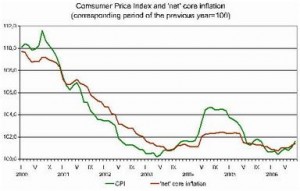
![]()

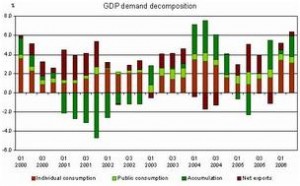
1. Pomeranian Special Economic Zone was created on the basis of the decree dated 11 July 2001, it will be functioning till 30 November 2017.
Major investors in the Pomeranian
Special Economic Zone :
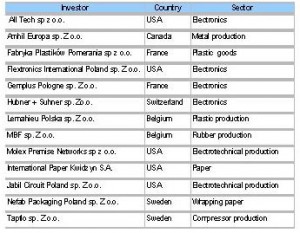
2. Slupsk Special Economic Zone is managed by Pomeranian Regional Development Agency. The zone’s area is 210.02 hectares, 5 investment spaces are united in it:
1. Slupsk wlynkowko(102.92h)
2. Redzikowo(33.10 h)
3. koszalin(22h)
4. Dbrzno(9.8h)
5. Szczecinek(42.13h)
3. Suwaki Special Economic Zone is located in the north-east part of Poland, it includes four additional zones. The zone has the operation period of 20 years. It offers the following advantages to investors:
– The space is equipped with technical infrastructure
– The lowest real estate prices
– An opportunity of cooperation with the companies working in the zone
– Excellent location – not far from Russia, Lithuania and Belarus
– The cheapest labor force in Poland
– Highly qualified young workers
– Friendly relations
62 firms are working in this special economic zone, 55 investors have already started their activities in the mentioned place.
4. Warmia-Mazury Special Economic Zone was created in 1997, it is located near the Polish border – not far from Russian Kaliningrad region. The total cost of the planned investments makes up 423.7 million EUR, by means of which 5 550 people will be employed.
Major investments in Warmia-Mazury
special economic zone
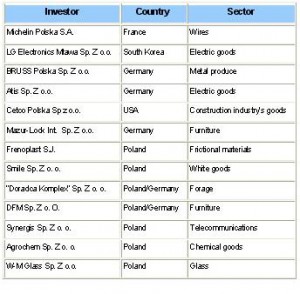
5. Lodz is Poland’s second largest city having the population of 800 000 people. Its special economic zone is divided into 16 subzones. This zone it distinguished by the high quality of standards and services, which creates a good environment for investors.
Major investors in the £ódŸ Special Economic Zone:
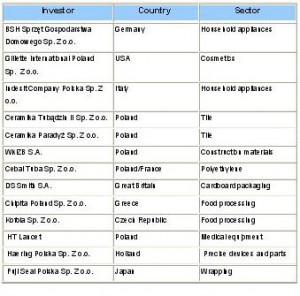
6. Kostrzyn-Slubice Special Economic Zone is located in the western part of Poland. From the viewpoint of Geography, it represents the center of Europe and is near to Germany and Czech Republic.
Companies having foreign capital, which started their activities in the zone in 2005:
– Bee Polska (Belgium, plastics)
– Hanke Tissue (Germany, paper)
– HMP Heidenhain Microprint (Germany, electronics)
– Arcobaleno (Italy, footwear)
– VW Poznañ (Germany, motor-car spare parts)
– Homanit (Germany, wood production)
– BCC Polska (France, motor-car spare parts)
– Fraba (Germany, electronics)
7. Lengica Special Economic Zone is located in the south-west part of Poland, in the center of Europe. It is divided into 7 subzones and is distinguished by a high quality of the communication network.
Major investors in the Legnica Special Economic Zone:
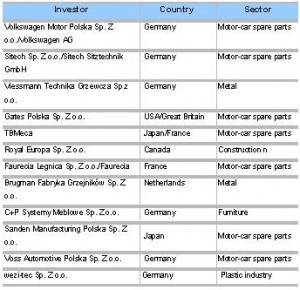
8. Tarnobrezeg Special Economic Zone was set up in 1997 for the period of 20 years. According to investment projects, 6000 new workplaces were created, currently 9000 people are employed.
Major investors in the Tarnobrzeg Special Economic Zone EURO-PARK WIS£OSAN:
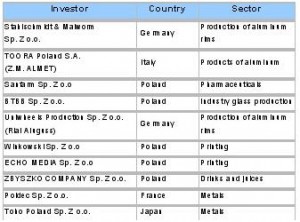
9. Strachowice Special Economic Zone has the area of 329.8 hectares.
Major investors in the „Starachowice”
Special Economic Zone:
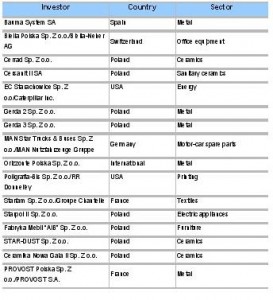
10. Kemienna Gora Special Economic Zone is located in the south-west part of Poland and it is advantageous for the small business. The zone borders upon Germany and Czech Republic, it will be functioning till 2017. 27 investors carry out their activities in the zone, they have employed more than 2000 people.
Major investors in the Kamienna Góra
Special Economic Zone:
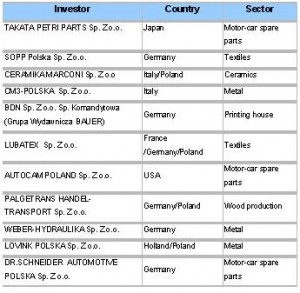
11. Walbrzych Special Economic Zone was divided into 15 subzones. Each subzone has a modern technological infrastructure that is constantly being developed. The companies working in the zone have employed 18 788 people.
Major investors in the Wa³brzych Special Economic Zone:
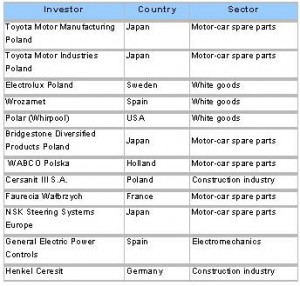
12. Katowice Special Economic Zone was set up in 1996 with the purpose of creation of new workplaces. 21 690 new workplaces have been created.
Major investors in the Katowice Special Economic Zone:
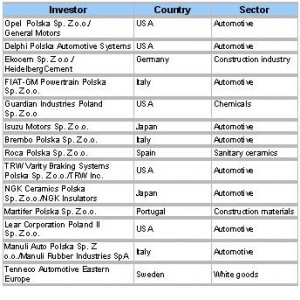
13. Euro-Park Mielec Special Economic Zone was set up in 1995 and was the first precedent in Poland. Today it occupies an important place on Poland’s economic map. Investors like it since there are good conditions for them and favorable tax situation in it. 11 000 new workplaces have been created in the zone.
Major investors in the Special Economic Zone
EURO-PARK MIELEC:
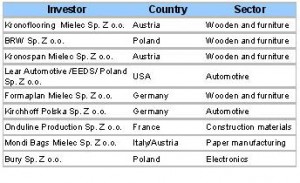
14. Krakow Technology Park – Special Economic Zone. It was set up in 1998.
Main Investors in the Special Economic Zone –
Kraków Technology Park:
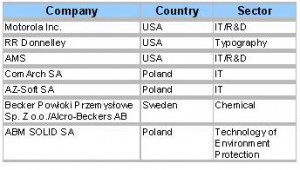
Banking system and financial services in Poland
The Polish banking system is strong and solid. From 1989, i.e. after the beginning of the transitional epoch, it became possible for Poland to get rid of the problems that other countries encountered because of the changes.
Poland’s banking system – effectiveness of processes was formed on this market during the last ten years. Completely or partially privatized banks represent the biggest group among the commercial banks working on the Polish market. The largest institutions of Europe and the world took part in their privatization, that is why most of Polish banks are in the hands of foreign investors.
At the same time, along with large commercial banks, small ones are also working in Poland. In the second quarter of 2005 the fixed capital of the commercial banks made up 11.948 million zlotys, while the stock share of corporate banks – 529 million zlotys.
Intensive development of credit companies has become a characteristic feature of the banking market in the past years, which takes place in the on-line regime: a certain number of banks offer internet services to customers. Finally, placing of savings in investment funds and other financial institutions has become very popular in the recent years. At the beginning of 2006 the means of the investment funds working in Poland made up 61.1 million zlotys. The given sum has increased by about 60% during this year, which makes up 20% of the country’s savings. The development that takes place in the region is the evidence of the fact that the Polish society is becoming equal to the highly developed countries.
Availability of labor
force in Poland
Over the recent years one of the most important reasons for numerous investments in Poland has been the labor force. The quality of Polish labor can be compared to more developed countries, and, besides, it is much cheaper. The essence of this difference is shown in the report of Boston Consulting Group dated July 2005 headed “Poland’s Advantage in Competition”, in which labor costs of the Western and Eastern Europe as well as the Asian countries are compared.
Along with low costs, availability of labor force also represents Poland’s advantage, which is emphasized in the 2005 report of Ernest & Young headed “Attraction of Investments in Europe”. Poland was mentioned in it as the most advantageous country in Europe from the viewpoint of labor force. There is one important factor except for low costs of labor force – Poland has a rather big population, and in many spheres (e.g. motor-car construction) it has longstanding production traditions, in view of which it is easy to find a qualified labor force and engineers. It should be pointed out that availability of labor force in Poland depends on regions, university and industrial traditions. That is why, in order to find qualified engineers and information science specialists, we should take into account large cities where university centers are located. Besides Warsaw, Krakow (where Motorola already has a research center), Gdansk (Intel), Wroclaw and Lodz are also important.
Many international companies made investments in the Polish research laboratories. This fact shows that the international business appreciates the advantage of this sphere in Poland.
Social-demographic processes promote further development of this advantage. The current demographic boom on the country’s labor market is higher than it was 10-15 years ago.
Mass flight effects
Among the new EU countries, Poland holds the first place in the export of labor force. The unemployment indicator in the country makes up 15.5%, but some businesses working in the country are trying to fill the vacancies, while other sectors raised the wages with the purpose of retaining of the employed people.
The Polish government constantly declares that it needs farmers. In spite of the fact that the Polish labor force is fleeing abroad in search of better work and wages, foreign nationals need a permit to legally work in Poland. However, the process of getting a work permit is rather long, though there are exceptions, e.g. journalists, teachers of foreign languages and clergymen will not have to wait long for a permit. The procedure of employing Turkish nationals and the workers that come for seasonal work from neighboring countries has also been simplified. Poland has many neighboring countries, but this concerns only some of them – Ukraine, Belorus, Russia and Germany.
Particularly large number of doctors goes abroad from Poland. Popular are anaesthetists, 8% of which have already left the country, then come surgeons and young doctors that go abroad in order to pass the exams and start the practice. According to the data, doctors’ incomes in Poland are the lowest among the European countries, if we do not take Britain into account, where the situation from this point of view is still worse. The average income of a doctor in Poland makes up 9 zlotys, it is a ridiculous sum for a person who learnt for 6 years and regularly takes difficult examinations for raising the level of his skill.
The second group of specialists, that are looking for their fate and money abroad, are builders. There is a disturbing situation in – it is becoming more difficult to find a skilled builder. One of the reasons for that is the existing real estate boom, but the migration of builders is considered as a more important reason. The Poles believed that putting one brick on another was not a big problem and that anyone would be able to do it, but the difficulties are already obvious, while builders are working in England. For this reason, construction in Poland is a more difficult matter than selling of real estate. In order to attract labor force, construction companies are increasing compensations. According to the data of the Statistics Bureau of Poland, in the second quarter of 2006 the average salary in the construction sector has reached 2.495 zlotys, which exceeds the indicator of the last year’s August by 15%.
The World Bank warned the countries of the labor force outflow – the countries that receive it get economic profits, while the countries, from which labor force is fleeing, should keep an eye on this tendency and think of their own economy. Because of the high unemployment rate, they fear that a lot of the country’s citizens are unemployed with the purpose of receiving various allowances.
Poland’s Construction Minister promises high remuneration to
Georgian builders and profitable investments to investors
Antoni Jaszczak (the Minister of Construction of Poland): “Today there is a construction boom in Poland, with corresponding problems; it is also a serious investment market for Georgian businessmen and a labor market for construction specialists”.
I would like to point out that our ministry is still very young, even 6 months have not passed since it was set up. It was formed as a result of dividing of the Ministry of Transport and Construction. 230 people are employed in our ministry and has three departments. Two of them are headed by Deputy Ministers and the third one by the Assistant of the Deputy Minister. Under my supervision there are also three bureaus, the Scretariat of the Ministry, the Information Bureau and the Bureau for Cooperation with Foreign Countries. Our ministry carries out activities in three spheres, they are as follows: construction, house-building and space development sphere. Our main tasks are construction regulation and simplification of receiving construction permits. We also work in the sphere of laying of roads, railway tracks and water pipelines. The governments policy is aimed at simplification of these procedures in order to create good conditions for foreign investors. Our goal is attraction of foreign investments and we want to be competitive in this sphere. Particularly, we want to be competitive in relation to Lithuania, Slovakia and Czechia.
Thus, if Georgian investors want to make investments in Poland, we would like to create better conditions for them than the Czechs, Slovaks or Lithuanians, since competition exists within the European Union as well. As to the issues related to making of investments, all investors of the EU are related to the Polish market. There are also investors from North America, Canada and Korea. This year Poland’s GDP should increase by 4,6%, our reference point is increasing the volume of house-building and a definite government’s policy has been carried out here – it envisages that the Ministry of Construction should render assistance to interested persons in the issues related to house-building. Unfortunately, Poland holds the last place in the European Union. As to house-building, we are planning to build 1,8 million apartments during 7-8 years. These will be flats that will be built with assistance of the state and the Ministry of Construction in particular, while 1.2 million flats will fall to the share of commercial construction. Currently the best professionals in this sphere are working in EU countries, proceeding from that we are going to create all kinds of conditions in the construction sphere. But, unfortunately, young Poles do not aspire to study the construction business. We would like to use Span’s experience in construction. I mean application of high-tech materials, since, if we compare the construction potentials of Poland and Spain, we shall see that last year the Spaniards handed over 600 thousand flats to customers, while the Poles – 120 thousand flats. Thus, this difference is significant and we have a wish to increase these indicators. Of course this concerns different groups of flats. In Poland there exists the pattern taken over from France – the so-called house-building association, municipal and social house-building. All citizens of the EU member-country should have accommodation of their own, but it does not mean that in Poland there are no people that have no shelter. Even in Paris there are homeless people. They do not want to have a social shelter and prefer to live outdoors. Unfortunately, the authorities cannot influence them proceeding from the democratic principles. However, we would like that there should as less instances of this kind as possible. This is the general outline of our ministry’s activities.
What is implied by “in the flats built with the state assistance”?
– The state assistance implies granting of lax credits to needy families, single mothers, etc. Over the past 8 years this category of citizens has been rendered assistance in paying out of the credit. This assistance is ridden on the mortgage credit with the 3% annual payment that is very popular in Poland. The government is anxious that credit should be taken in zlotys, but more often the credit are taken in Swiss francs since it is cheaper than the one taken in zlotys. The credit period makes up from 25 to 40 years. The opportunity of getting this kind of credit pushed flat prices up by 30%. Currently, in order to get flats tenants are registered on empty fields and it is not known yet when and what kind of flats will be built in them. Here the matter concerns the flats that should be built during the period of 2-3 years and the prices of which are attractive. There are also ready, built flats, but their price is not so obtainable as that of the ones that are to be built.
What is the percent share of construction in the GDP and how it is taxed?
– Construction does not have a big share in the GDP because, as I have told you, 130 thousand flats should be handed over this year and, mainly, it is the industry’s share. As to taxation, for the time being it is a problematic issue, we want to retain 7%. It is up to the Eurocomission to fix the 7% tax, so we are waiting for the determination of the Finance Minister concerning the public construction.
How open is the labor market for Georgian builders in Poland?
– We are open in this matter, but the corresponding agreement should be just signed between Polish and Georgian Ministries of Labor. This kind of agreement with Ukraine is already being prepared and negotiations with Belarus have begun. However, the problem arises from the Russian part, since it is a big competitor as far as attraction of labor force for construction is concerned.
Russian embargo,
economic sanctions and the war against
democracy and freedom did not start with
Georgia – there was
Poland before that
The collapse of the Soviet Union and creation of new independent states changed the geopolitical situation, which concerns not only Eastern Europe. The West lost its main enemy, the cold war is over. However, Russia still remains a powerful country with its nuclear weapons, uncertain economic and political reforms and vague foreign policy, which particularly concerns its neighboring countries. Because of Russia’s strained relations with the neighboring countries, the West’s policy in the region undergoes changes.
Coldness can be felt in the relations between Europe and Russia, Russia is angry with Ukraine and Georgia. After launching of Baku-Jeikhan oil pipeline Moscow loses its monopoly for transportation of energy carriers from the Caspian region to the West. Unexpectedly, Gazprom requires world prices for energy carriers and considers them as an important instrument for controlling the countries.
If Russia continues the policy of its transformation into a modern state, the EU’s importance will also increase. The future development depends on Russia’s strategic choice as well as on EU’s ability to be a safe player on the international arena.
Economic relations between the EU and Russia are important for both parties. 50% of Russia’s foreign trade falls on the EU countries. The EU is a source of technologies, know-hows and investments for Russia, while Russia is rich in natural resources and has qualified labor force. But the main thing is that Russia can ensure the EU’s energy security. Currently is supplies 25% of consumed gas to Europe. Russia is the fourth largest trade partner of the EU, after the US, Switzerland, China and Japan.
In 2006 economic relations between the two parties were orientated for energy, which could be clearly felt in Mr. Putin’s speech at the EU Summit in Helsinki. Europe needs Russian energy, while Russia needs the huge European energy market. However, the Europeans remind Russia that economic relations do not include energy carriers only.
“Russia imposes economic sanctions not only against Georgia. Poland has already experienced them as well”, – said the Deputy Foreign Minister of Poland Mrs. Barbara Krystyna Tuge-Erecinska in a conversation with us. In November 2005 Russia banned meat, fruit and dairy products import from Poland, since they found some defect in 1% of the products and completely banned import from Poland, because of which the country lost 50 million EUR. However, 60% of our export falls on Europe and it is our main guiding line. At the same time, over the past three years the export has increased three fold. Thus, Russia “helped” us to find this market so fast.
Moreover, – she said, – Russia opposes Polish investments to the neighboring countries. For example, there is one fact. A rather big Mazhekiai oil refinery was on sale in Lithuania, which was purchased by Polish investors at a serious price, while the Russians wanted to take hold of it free of charge. As a tool for exerting pressure they used the fact that the oil pipeline, by means of which the refinery was supplied, was full of Russian oil. At first aggravated Russians cut off oil supply by the pipeline. Then the Polish investors found an alternative source and complained to the EU structures of the violation of the antimonopoly law. When it became known that these structures had taken a positive decision on the complaint, the Russians failed to do anything – not long ago a fire broke out at the refinery and it burnt down. The damage made up hundreds of millions EUR. In spite of the fact that Poland is represented rather seriously in Russia’s construction business, the growth of investment is still not stuffiest. To put it mildly, this country is not the one with open economy, but we are working on the establishment of partnership-based relations. We also do not leave without attention the problems of our neighbors – Georgia, Ukraine and Moldova, since it is a principal issue for us and the European democracy on the whole. In spite of it, you should do more for the growth of your production and its advertising in Europe. Sooner or later Russia would have closed its market for you, that is her style. So, the sooner you switch to the European standards the better you will be able to solve the tasks confronting you, – she said.
Among the 25 countries of the EU, Poland is Russia’s forth largest partner country. In the first seven months of 2006 the goods turnover reached the level of 10 billion USD, though Poland is expecting of the Russian embargo on agriculture products, on meat in particular.
The tensions between Georgia and Russia began in 1992 when Russia refused to supply banknotes, products and carry out settlements. It was fighting Georgia in Abkhazia and was cheating Shevardnadze’s government when took away parts of Abkhazia after each negotiations, and finally Russia drove out 280 thousand Georgians from their homes. It also seemed not enough for Russia and by means of its agents it inspired a civil war in 1993-1994. Starting from this time it has been arranging isolation and blockade to Georgia, then there was deployment of the so-called peacekeepers to the conflict territories and introduction of visas for Georgian citizens. These tensions entered the new stage after four Russian citizens suspected of espionage were detained in Georgia. As a result, it was followed by the persecution of the Georgian diaspora in Russia and other unpleasant decisions. Money transfers from Russia to Georgia and communication between the countries were banned. It is not clear how Russia will continue economic relations with Georgia. Russian monopolist Gazprom declares that, in spite of the shaped situation, it will not cease gas supplies to Georgia. After the Revolution of Roses in 2003 Georgia became orientated for the West, and Russia clearly saw that it loses influence in the Southern Caucasus. The growing Russia’s aggression against Georgia was expressed in economic sanctions. In winter 2005 Russia reminded it to Georgia once again that it is a country rich in energy resources and that it is the same empire that it was under the rule of the Tsar, Lenin, Stalin and even Yeltsin.
After the Orange Revolution, Russia became angry with Poland because of the statements of the Polish President and had no serious contacts with it for two years. The first official person that visited Warsaw this autumn was Mr. Lavrov – the Minister of Foreign Affairs of Russia and, according to Polish experts, he raised the issue of NATO’s enlargement and spoke out against its expansion to the East. Besides he mentioned Georgia’s membership as well, though he heard the uncompromising position of the Polish President on this issue, which he later declared at the meeting of the European leaders with Mr. Putin. Particularly he said that the sanctions against Georgia are unfair and that is has the right to integration into NATO and the EU, and that it does not represent any threat to anyone. At this meeting the Polish President was most actively supporting Georgia and did not feel embarrassed to offend Mr. Putin on this issue.
– E.J. What are Georgia’s chances of joining the EU and what we have to do for that, or, generally speaking, does Georgia need it?
Deputy Foreign Minister: It would be good if Georgia joined the EU and NATO. Proceeding from our experience, joining NATO was easier for us than entering the EU. Membership in NATO is a political decision, while joining the EU is an economic process. It is impossible to solve economic problems by a political decision.
– E.J. What kind of assistance can Poland render to Georgia? Does the matter concern the assistance in integration into the European Union?
– It depends on the kind of assistance Georgia will ask of us. I can tell you what we do now. From the viewpoint of assistance in development, Georgia is a priority country for us. From this point of view, the Foreign Ministry has identified several countries; it is a narrow group that includes Georgia. At the same time we support Georgia’s aspiration for joining NATO and the EU. Next year, under the chairmanship of Germany, the EU will formulate a plan in relation to eastern countries. The eastern policy also includes the Caucasian countries, and we hope that the proposals that will be made to Georgia will have a concrete character. Poland will take part in elaboration of the concept of this eastern policy and we would like this policy to have a serious financial aspect. We support Georgia during various meetings, I am convinced that Georgia is a very important partner for Poland in its democratic aspirations.
Natural gas and oil – Poland’s strategy and Georgia’s place in
Europe
The subject of natural gas is very important for Poland, through which passes the gas pipeline from Russia to Europe, and 60% of the consumed gas is imported from Russia (the remaining amount is produced in the country). Russia signed the well-known contract with Germany, according to which the new pipeline bypassing Poland is being built, by which they have inflicted a big damage to Poland’s economic interest. However, “Poland is looking for an alternative supplier”, – said the Deputy Minister of Economy Piotr Naimski. According to his statement, the construction of the pipeline to Europe through Georgia, the Black Sea Ukraine and Poland is very important for the whole of Europe and is the corner stone for Europe’s energy security. Europe does not want to be dependent on Russia and it to dictate its will to us. We have seriously enabled our coal fields. It occupies an increasingly important place in the energetics. At the same time, the assistance to Georgia and Ukraine in the implementation of economic reforms and the support in the strained relations is in the interests of our state. That is why integration of Georgia into the European structure is very important for us. In connection with the economic reforms, he said that at the early stage of privatization and shock therapy Leszek Balcerowicz made several mistakes that inflicted serious damage to Poland and impeded its development. Now we are correcting these mistakes, but Balcerowicz should answer for that and soon he will not be the Head of the Central Bank, he will have to give answers to the questions of the Seym’s special commission. Poland has one of the biggest economies in Europe, and, according to the investments growth rate, we hold the fourth place in the world.
Our task is ensuring of a complete energy security and retaining of the existing level of economic development, as well as overcoming of the budget deficit, unemployment and timely joining the euro zone, – he said.
There are 256 natural gas and 89 oil fields in Poland. According to the data, Poland has the reserves in the amount of 154.4 billion m3 of gas and 19.5 million tons of oil. The annual demand for oil makes up 11.4 billion m3, while annual production – 5.2 million m3.
Though there are a lot of oil fields in Poland, most of them are either small or exhausted. The In spite of the discovery of the new fields, country’s oil makes up only 4% of the country’s demand.
As to natural gas, the situation is comparatively better – the country has big resources, its production covers 32% of the demand, 60% is imported from Russia (through Belarus and Ukraine), while the remaining 8% – from Norway and Germany.
Budget problems of the European country with population of 40 million
The political situation in Poland is difficult now. Not long ago a new coalition government was formed. I personally witnessed the appointment of the new Vice-Premier and the voting concerning dissolution or non-dissolution of the Seym. However, as the Deputy Finance Minister told me, it is an ordinary democratic process and it will not have on its financial-economic activities, including the adoption of the new draft budget in the Seym.
Reduction of the deficit is the main priority, though the budget is growing considerably. The Polish government is adopting the new 2007 budget, in which the EU’s funds are included for the first time. According to the draft budget adopted on September 27 of the current year, the volume of the expected state revenue makes up 226.8 billion zlotys, expenses – 256.8 billion zlotys, and the deficit – 30 billion zlotys. The budget revenues from the EU’s funds make up 14.6 billion zlotys, the expected total revenue from the tax and non-tax sources – 212.2 billion zlotys.
According to the data of the Government’s Information Center, the budget has the following purposes: growth of the GDP by 4,6%, consumer growth by 3,7%, average annual growth for commodity and consumer services by 1.9%, employment growth in the public sector by 1.4% on average, nominal growth of wages in the public sector by 5.1%.
The planned GDP indicator of 2007 falls behind the one of 2006, which is related to slowing down of the world economy’s growth rate. The Deputy Prime Minister and the Finance Minister Zyta Gilowska commented on the budget and said that it is an innovational and not a bad one, but does not envisage cutting down of expenses.
According to the calculations of the Finance Minister, by the end of 2007 the number of unemployed people will be reduced by 2.18 and make up 1,4%. Last August the unemployment indicator made up 15.5%, in 2006 budget the envisaged unemployment indicator by the end of the year was 16.2%.
The total revenue received from taxes is envisaged at the level of 191.7 billion zlotys. The same revenue will make up 16.8% in 2006 GDP, while in 2007 GDP – 17.4%.
The 11.4% growth of revenues from VAT and services and nominal 6.2% growth of excises is planned in the budget. The 13% growth of the excise tariff for tobacco products and the 10% growth of the excise for beer will have an effect on the increase of excise revenues. Increasing of the excise tariff takes place with the purpose of approaching the EU’s tariff standards.
The income from taxes on corporate revenues has increased by 15.3% and made up 22 billion zlotys, private tax revenues has reached the level of 31.5 billion zlotys and increased by 10.1%. The planned revenues from privatization make up 3 billion zlotys, the expected incomes from dividends – 2.4 billion zlotys.
The expenditure part of the budget in the GDP will make up 23.4%, while in 2006 it was 21.8%. Legally determined expenses will make up 73% of the planned expenses, they will increase by 13.7% in comparison with 2006. Defense, social insurance and welfare expenditure will increase as well.
Businessmen are not enthusiastic about the budget adopted by the government. They say that it cannot limit the deficit and restore financing of the society, which is a very big mistake. In spite of the country’s sharp growth, social welfare expenses are increasing. Entrepreneurs negatively appraise the increase of social welfare expenses to 3 billion zlotys. They blame the government for lack of consideration for reduction of public debts and inactivity, which means that public debts may exceed 50% of the GDP, which will be the first warning sign. According to experts, it is possible that the government raised the revenue indicator by 3-4 billion zlotys to make tax forecasts more optimistic. Experts maintain that only the indicator of VAT exceeds the real one by 3 billion zlotys.
The Polish Chamber of Commerce declares that the 2007 budget will not create a stable economy in Poland. The Chamber emphasizes that the budget that does not envisage reforms in the public sector leads to negative results. The President of the Polish Chamber of Commerce comments on the 11.4% increase of VAT and simply calls it “unjustified”. As to the increase of social insurance and welfare expenses, the Chamber’s representatives say that one should not hope for reduction of the deficit because of that. Their comment is as follows: when the county’s economic growth is high, the national budget should be balanced from the viewpoint of incomes and expenses so that there should not be any talk of the 30 billion deficit. The Chamber of Commerce is also worried about the pension funds that are financed by the national budget in the amount of 15 billion zlotys, which makes up 92% of the planned incomes.
The Chairman of the National Bank of Poland – Leszek Balcerowicz says that the national budget faces two problems: excessive “fiscalism” and accumulated public debts.
Deputy Finance Minister:
– What is the revenue dynamics of the Polish budget over the past two years?
– In 2005 the deficit of the Polish budget made up 3,9%, and 1,7% is planned for 2007.
In 2005 the budget revenue made up about 180 billion zlotys, while 227 billion zlotys is planned for 2007, which will be 15% more.
What is the amount of the tax and non-tax revenues?
– In 2005 the tax revenue made up 155 billion zlotys, in 2006 – 173 billion, while in 2007 it will make up 191 billion zlotys. These revenues are stipulated for two factors – joining the EU entailed the increase of wages, besides two important changes were implemented in the tax system. Joining the EU entailed the 27% increase of the tax on the products complying with the EU standards, besides, as far as the taxes on the industry’s revenues are concerned, they were reduced by 19%, but there appeared a wider areal of these taxes. A number of privileges that had existed for the industry were liquidated, and after that the growth of tax proceeds from the industry is observed.
What is the contribution of the special economic zones in the growth of tax proceeds?
– Currently their contribution is insignificant, these special zones were created for attraction of foreign investments and development of the regions with the highest unemployment rates. For the time being, the privileges for special economic zones were reduced in view of the fact that Poland became a member of the EU. With the purpose of withdrawing of this tax, there were privileges for the owners of real estate and for income taxes. The main privileges were aimed at raising the rate people’s employment.
Did the enterprises existing in these zones have any privileges as far as the income tax is concerned?
The enterprises existing in these zones had privileges related to the income tax, but these privileges were determined by a certain period of time.
Is there developed production in these regions?
– Not everywhere, creation of these special zones was not enough, the infrastructure’s development was necessary as well. That is why the current investments are gathered not in those special zones, but in the regions where there is developed infrastructure, not far from the cities.
What is the structure of the Ministry of Finance?
– In 2001 the Ministry of Finance and the customs were united. Besides, tax administration has always been subordinated to the Ministry of Finance. Besides, police, tax administration and similar bodies are also subordinated to it.
What are positive aspects of joining the EU?
– For each country joining the EU means introduction of changes in the Ministry of Finance. It requires carrying out of a more transparent policy and planning of what the sums and finances should be spent on. It is a double program proposed by the EU. It is seriously perceived by all countries of the EU and all of them should show how they managed to implement it. As to the other side of joining, the country has an opportunity of entering the EU market. However, in order to enter this market, the products produced by your country should be competitive. Special privileges on the part of the EU are envisaged for poorer countries, such as the regional policy of agriculture’s development. But it is related to a heavy responsibility, since the EU’s financing should be filled by the financing of the country itself and be used properly. Incorrect use of finances means that the financing sum should be returned. Financing takes place in accordance with the requirements put forward by all countries.
Does membership in the EU have positive sides only?
– It is a certain instrument that is based on both receiving of benefits and responsibilities. It is not a unilateral assistance in receiving of something. It is also important to what extent the country is ready for joining the EU and what it wants to use. A lot depends on the countries united in the EU. For instance, the countries that entered it at the same time are at different levels even now. I shall draw joining of Spain and Greece as an example. At this moment these two countries are at different levels of development, which indicates how both countries made use of the possibilities of being the EU members. Carrying out serious reforms and correct use of people’s finances is necessary. Besides, obtaining of results in many spheres requires some time.
